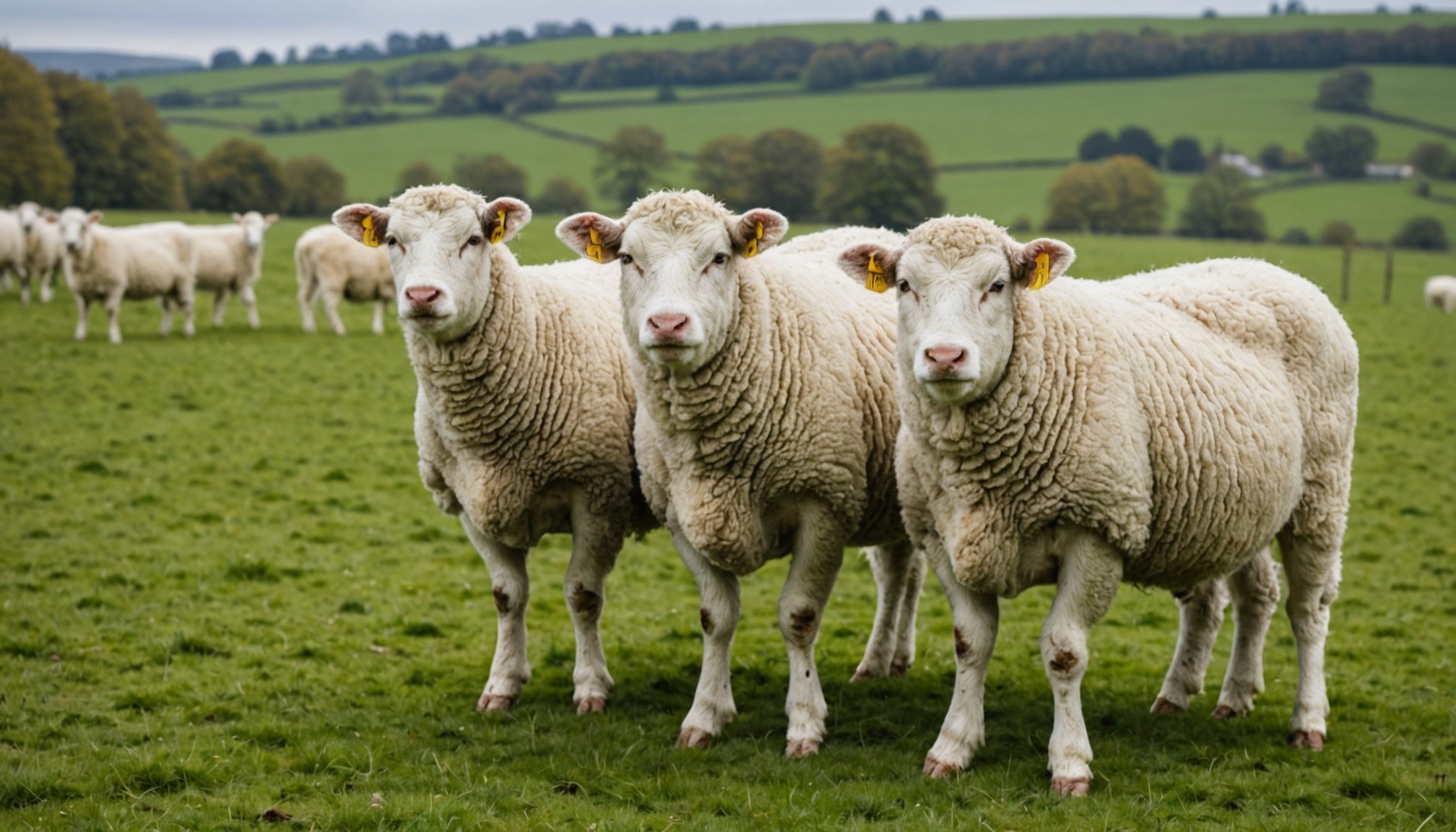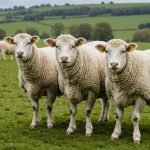Current Innovations in Sustainable Wool Farming
In recent years, the UK wool industry has embraced notable advancements in sustainable wool farming innovations. These innovations include technological developments that enhance the eco-friendliness of wool production. Farmers across the UK have adopted various eco-friendly practices to ensure their operations are both profitable and environmentally responsible.
A key technological advancement is the integration of precision agriculture tools. These tools help monitor soil conditions, optimise resource use, and enhance crop yields, contributing to more sustainable wool farming practices. Additionally, renewable resources such as solar and wind energy are being utilised to power farm operations, reducing reliance on fossil fuels and minimising carbon emissions.
Also read : Unveiling the Timeless Charm of the Christian Signet Ring
Eco-friendly practices don’t stop at technology; they also extend to the management of natural resources. For example, rotational grazing methods help maintain soil health, while diversified planting supports biodiversity. These practices ensure long-term sustainability and economic viability for farmers.
The adoption of renewable resources in wool production is another significant trend. By investing in solar panels or wind turbines, farmers not only reduce their ecological footprint but also cut operational costs, making sustainable practices an attractive option for the modern wool farmer. As these innovations continue to evolve, they promise to drive the wool industry toward a more sustainable future.
This might interest you : Everything you need to know about clearbags : Uses, benefits, and tips for choosing the right model
Case Studies of Successful Sustainable Wool Farms
Exploring sustainable wool farming case studies reveals compelling success stories from UK farms. These stories showcase how innovative approaches enhance both productivity and environmental responsibility.
Farm A: Implementing Circular Economy Practices
Farm A has excelled in using circular economy practices, effectively reducing waste and boosting sustainability. Techniques such as composting organic waste and reusing water have significantly improved farm productivity. By limiting waste output, the farm supports a healthier ecosystem and reduces costs, setting a benchmark for eco-friendly farming.
Farm B: Integrating Technology in Wool Production
At Farm B, the integration of precision farming technologies has led to noteworthy outcomes. Utilising sensors and data analytics, this farm optimises water and fertiliser use, resulting in resource conservation and increased efficiency. Such advancements not only cut down operational costs but also minimise the environmental impact, proving technology’s role in sustainable farming.
Farm C: Community Engagement in Sustainable Practices
Farm C’s success stems from engaging the local community in sustainable farming choices. By involving community members, Farm C has created a sense of ownership and accountability, leading to strengthened community relationships and enriched biodiversity. This participatory approach yields benefits that extend beyond farming, enhancing both environmental and community well-being.
Environmental Impact of Sustainable Wool Farming Practices
The environmental benefits of sustainable wool farming practices are wide-ranging, offering a promising alternative to traditional methods. A notable advantage is the significant reduction in carbon footprints. By utilising solar or wind energy and incorporating eco-friendly practices, farms effectively minimise carbon emissions, making the wool industry more eco-conscious.
In addition to lowering carbon emissions, biodiverse farming methods enrich ecosystems. Through techniques like rotational grazing and diversified planting, farmers preserve and enhance local biodiversity, crucial for a balanced environment. These strategies benefit not only the farms but also the surrounding natural habitats, fostering a harmonious coexistence between agriculture and nature.
Economically, sustainable wool farming is advantageous. By cutting down reliance on costly non-renewable resources and utilising renewable ones, farms can significantly reduce operational costs. This not only improves profit margins but also ensures long-term viability in an increasingly eco-aware market.
The integration of eco-friendly innovations in wool farming supports a resilient agricultural framework. As these innovations continue to develop, they promise ongoing contributions to environmental preservation, showcasing the transformative potential of sustainable methods in wool production. By continuously adopting such practices, the industry can lead the charge towards a greener future.
Expert Opinions on the Future of Wool Farming
Through expert insights, we can predict the trajectory of wool farming. Agricultural professionals speculate on several upcoming trends that could reshape the industry’s landscape. One prominent trend is the potential increase in technological integration within farming operations. As innovations like artificial intelligence and advanced sensor technologies become more accessible, they are expected to play a significant role in enhancing efficiency and sustainability.
Experts also foresee potential regulatory changes in the wool industry that could further encourage eco-friendly practices. With growing global awareness of environmental issues, regulations are likely to become more stringent, prompting farmers to adopt sustainable methods to comply with new standards. These changes may include stricter guidelines on waste management and energy use, ensuring the industry aligns with broader sustainability goals.
Consumer choices are predicted to exert a considerable influence on the future of wool farming. As consumers become more environmentally conscious, their demand for sustainably produced goods is expected to rise. This demand could drive farms to prioritise eco-friendly practices, ultimately impacting the strategies and operations within the industry. Therefore, the intersection of expert guidance, regulatory frameworks, and consumer preferences will likely shape the evolution of wool farming in the UK.
How to Get Involved in Sustainable Wool Farming
Engaging in sustainable practices within wool farming is not only beneficial for the environment but also for the farming community at large. For those looking to transition to or support sustainable methods, several resources and approaches can facilitate this process.
For farmers interested in embracing sustainable wool farming, numerous resources are available. Workshops and training sessions provide invaluable insights and strategies, ranging from eco-friendly practices to integrating renewable technologies. Engaging in online platforms dedicated to sustainable agriculture offers the perfect opportunity to share knowledge and experiences, enhancing collective expertise within the community.
Consumer awareness plays a pivotal role in encouraging sustainable wool farming. By choosing products labeled as sustainably produced, consumers can support eco-friendly wool producers. Educating oneself on the impacts of wool production and the benefits of sustainable farming helps create an informed consumer base driving demand for responsible products.
Furthermore, involvement in community initiatives and partnerships can bolster wool farming involvement. Collaborative projects not only improve farming practices but also strengthen local economies, making sustainability a shared goal. Community participation ensures a more comprehensive adoption of sustainable methods, promoting both environmental stewardship and economic resilience in the wool industry.











